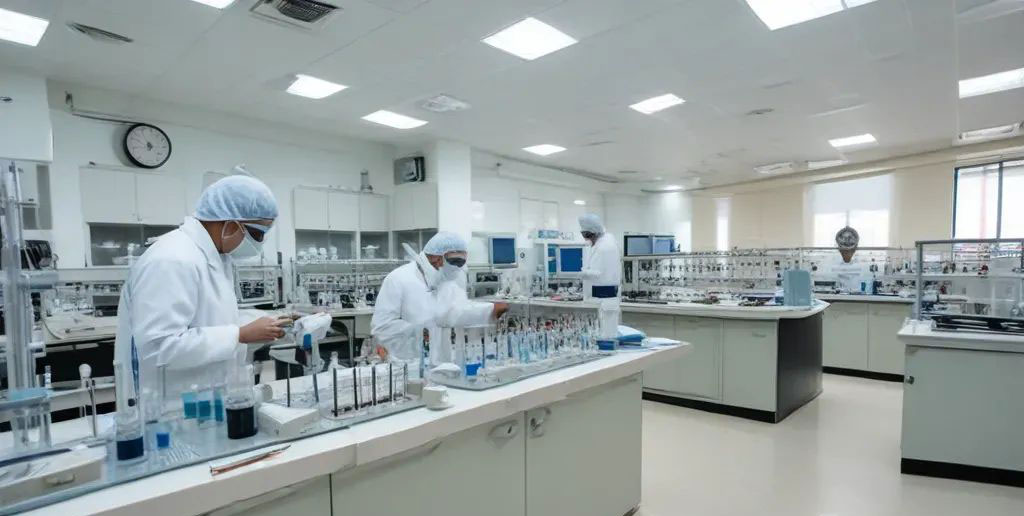B.Tech. in Biotechnology

About
About: B.Tech. in Biotechnology curriculum typically covers fundamental courses in biology, chemistry, mathematics, and engineering, along with specialized subjects like molecular biology, genetics, bioinformatics, bioprocess engineering, and biostatistics. Students also gain hands-on experience through laboratory work, internships, and industry projects.
Eligibility: Candidates should have completed their 10+2 education with Physics, Chemistry, and Biology/Mathematics as core subjects. S
Duration: The duration of the B.Tech. in Biotechnology program is typically four years, divided into eight semesters.
Job Opportunities: Graduates of B.Tech. in Biotechnology have diverse career options. They can work in fields such as pharmaceuticals, healthcare, agriculture, environmental science, food technology, and more. Some specific job roles include:
Research Scientist: Conducting research in laboratories to develop new drugs, therapies, or genetically modified organisms.
Bioprocess Engineer: Designing and optimizing processes for large-scale production of biopharmaceuticals, biofuels, or other bioproducts.
Quality Control Analyst: Ensuring the quality and safety of biotechnological products through testing and analysis.
Bioinformatician: Using computational techniques to analyze biological data, such as DNA sequences or protein structures.
Regulatory Affairs Specialist: Ensuring compliance with regulatory requirements for biotechnological products and processes.
Why Choose This Course:
Innovation: Biotechnology is at the forefront of innovation, with constant advancements in areas like gene editing, synthetic biology, and personalized medicine.
Global Impact: Biotechnology has the potential to address global challenges such as disease, hunger, and environmental degradation, making it a socially relevant field.
Interdisciplinary Approach: B.Tech. in Biotechnology integrates knowledge from biology, chemistry, engineering, and computer science, providing a holistic understanding of biological systems and their applications.
Career Opportunities: The growing demand for biotechnological solutions in various industries translates to abundant career opportunities for graduates.
Contribution to Society: By pursuing a career in biotechnology, individuals can contribute to improving human health, enhancing food security, and protecting the environment, making a positive impact on society.
Scope: Biotechnology is a rapidly growing field with diverse applications. Graduates can find opportunities in pharmaceutical companies, biotech firms, research institutions, agriculture, food processing industries, environmental agencies, and healthcare organizations. They can work in various roles such as research scientists, bioprocess engineers, quality control analysts, bioinformaticians, and regulatory affairs specialists.
